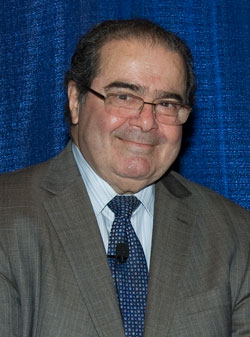Study: Justices Interrupt Lawyers More Often When They Disagree; Scalia Interrupts Both Sides

Photo of U.S. Supreme Court Justice Antonin
Scalia courtesy of ABA Media Services.
U.S. Supreme Court justices tend to interrupt counsel during oral arguments more often when they disagree with the position being taken, a new study has found.
Justice Antonin Scalia, however, consistently interrupts arguments from both sides, and only barely favors lawyers when he agrees with their positions, reports U.S. News & World Report. Scalia interrupted the most often in the 11 cases studied.
Interruptions by Chief Justice John G. Roberts Jr., on the other hand, were highly correlated with a negative vote in the case, according to the study by two political science professors and an undergrad at the University of Arkansas.
The study looked at oral arguments in 11 significant cases from the 2009 and 2010 terms, and then correlated interruptions to votes, according to a press release and U.S. News. The conclusion, according to the press release: “Justices appeared to use interruptions not to ask questions that help them form their opinions about the case, but to convince the other justices to think the way they want them to think.”
Roberts’ statements may have fooled observers during oral arguments in the challenge to the Obama administration health care law, however. An analysis found that Roberts spent about 81 percent of his speaking time challenging the law’s supporters. Roberts wrote the opinion upholding the law’s insurance mandate under Congress’ taxing power; he reportedly switched his vote after initially deciding to strike down the law.



